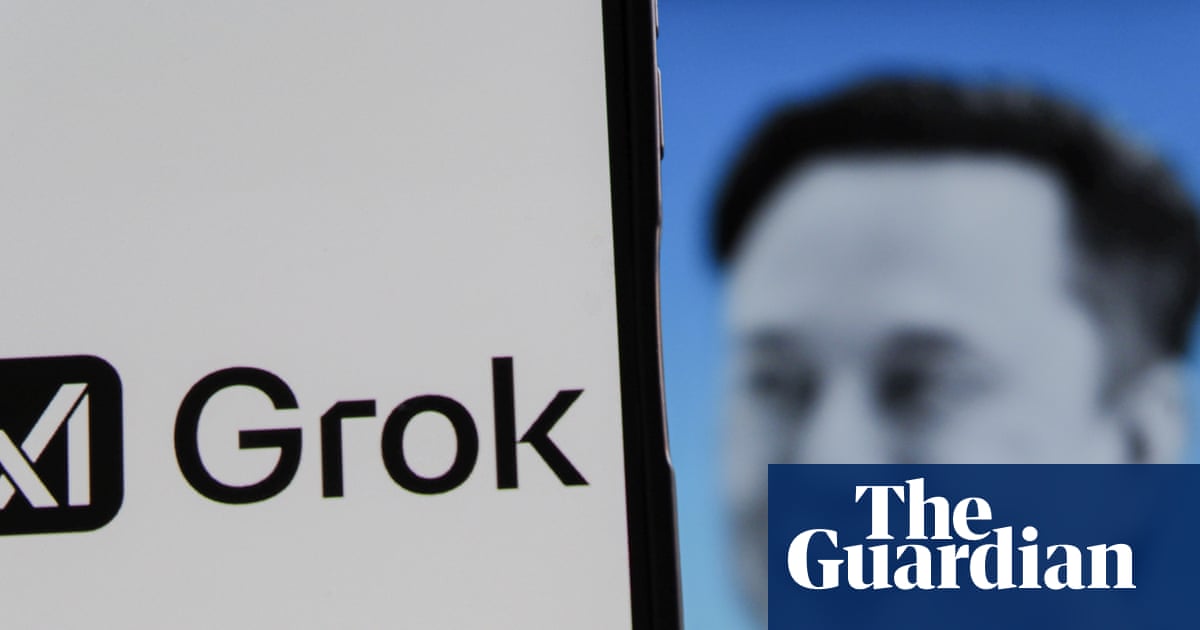#ai-bias
#ai-bias
[ follow ]
#elon-musk #gender-bias #grok #facial-recognition #surveillance #meta #large-language-models #human-ai-interaction
Artificial intelligence
fromThegistsports
3 weeks agoAI prominence in Super Bowl ads ignites conversation about its role in women's sports | The GIST
AI both risks reinforcing gender bias in sports media and empowers women athletes and leagues through content creation, personalization, and workflow efficiencies.
Artificial intelligence
fromLawSites
1 month agoAI Video Tools Depict Lawyers and Judges As Women At Far Lower Rates than Real Life, New Study Finds
AI video-generation tools substantially underrepresent women and people of color in legal and other high-paying professions compared with real-world workforce data.
fromWashingtonian - The website that Washington lives by.
1 month agoHe Was Jailed Because an Algorithm Misidentified His Face. Now His Photograph Hangs in the Smithsonian. - Washingtonian
The National Portrait Gallery is Jared Soares's favorite museum. It's just a few Metro stops away from the photographer's home in Northeast DC, and he says he's visited dozens of times to admire the works from his favorite artists. But Soares's next visit will be different. The second floor of the gallery now features Soares's award-winning photograph, Misidentified by Artificial Intelligence: Alonzo and Carronne (2023).
Photography
Careers
fromSlate Magazine
1 month agoThe Hiring Market Is Truly Terrible Right Now. Job Seekers Are Starting to Do Something Unthinkable to Get Hired.
Modern hiring is highly competitive, biased by A.I. and demographics, and increasingly shifts costs to applicants while reducing entry-level opportunities.
Artificial intelligence
fromNature
1 month agoAIs are biased toward some Indian castes - how can researchers fix this?
Popular AI language models reproduce and overrepresent upper-caste and majority-religion stereotypes in Indian narratives while underrepresenting marginalized castes and minority religions.
Artificial intelligence
fromLGBTQ Nation
2 months agoAI disproportionately discriminates against trans people. It doesn't have to be this way. - LGBTQ Nation
Trans and nonbinary people view AI more negatively than cisgender people and experience documented harms from facial recognition, content moderation, and generative AI.
fromenglish.elpais.com
2 months agoAfrofeminasGPT: A decolonial and anti-racist AI
When ChatGPT is asked to define racism, it answers, it is not just an attitude, but a power and exclusion structure across the social, economic, cultural and political. AfrofeminasGPT, on the other hand, defines it as a power structure that builds a hierarchy of human beings based on supposed racial differences, to legitimize domination, exclusion and dehumanization. It operates in language, images, bodies, laws, economics, aesthetics, and memory. And it is maintained through silence, ignorance, denial and the symbolic reproduction of stereotypes.
Social justice
fromMarTech
3 months agoHow to stop AI decisions from repeating human biases | MarTech
One thing that has always fascinated me is how an innocent, dispassionate analysis can still reinforce biases and exacerbate societal problems. Looking at crime rates by district, for example, shows which area has the highest rate. Nothing wrong with that. The issue emerges when that data leads to reallocating police resources from the lowest-crime district to the highest or changing enforcement emphasis in the higher-crime district.
Artificial intelligence
Artificial intelligence
fromBusiness Insider
3 months agoGrok insisted that Elon Musk is more fit when asked to choose between the xAI founder and LeBron James. Here's what other chatbots said.
Grok AI claimed Elon Musk is more holistically fit than LeBron James and could beat Mike Tyson, despite previously producing antisemitic and conspiratorial content.
Artificial intelligence
fromfuturism.com
3 months agoThe Way Grok Describes Elon Musk's Intellect and Athletic Prowess May Cause You to Doubt the Incredible Power of AI
Grok, an AI chatbot, gives effusive, factually questionable praise of Elon Musk's physique, intellect, and family relations, revealing apparent bias and propagandistic tendencies.
fromComputerWeekly.com
3 months agoSwedish welfare authorities suspend 'discriminatory' AI model | Computer Weekly
A "discriminatory" artificial intelligence (AI) model used by Sweden's social security agency to flag people for benefit fraud investigations has been suspended, following an intervention by the country's Data Protection Authority (IMY). Starting in June 2025, IMY's involvement was prompted after a joint investigation from Lighthouse Reports and Svenska Dagbladet (SvB) revealed in November 2024 that a machine learning (ML) system being used by Försäkringskassan, Sweden's Social Insurance Agency was disproportionally and wrongly flagging certain groups for further investigation over social benefits fraud.
EU data protection
Artificial intelligence
fromArs Technica
3 months agoHow Louvre thieves exploited human psychology to avoid suspicion-and what it reveals about AI
Thieves exploited social expectations and category-based perception to bypass surveillance, illustrating how human and AI pattern-based systems can be deceived.
fromFast Company
3 months agoElon Musk's latest venture is less an encyclopedia than an algorithmic mirror of one man's ideology
Its imperfections are human, visible, and correctable. You can see who edited what, when, and why. Grokipedia is its antithesis. It replaces deliberation with automation, transparency with opacity, and pluralism with personality. Its "editors" are algorithms trained under Musk's direction, generating rewritten entries that emphasize his favorite narratives and downplay those he disputes. It is a masterclass in how not to make an encyclopedia, a warning against confusing speed with wisdom.
Artificial intelligence
fromFortune
4 months agoChanel's CEO went to Microsoft HQ and asked ChatGPT to show her a picture of her company's leadership. They were all men in suits | Fortune
"We're like, 'Show us a picture of a senior leadership team from Chanel visiting Microsoft'-it is all men in suits," she said.
Artificial intelligence
fromNature
4 months agoWould ChatGPT hire you? Your age and gender matter
Researchers have analysed hundreds of thousands of images from places like IMDb and Google Image Search as well as the kinds of online texts used to train large language models. They found a persistent age gap between men and women when it comes to how they are shown and talked about online.
Social justice
Information security
fromTechCrunch
4 months agoAmazon's Ring to partner with Flock, a network of AI cameras used by ICE, feds, and police | TechCrunch
Ring partnered with Flock, allowing agencies to request Ring users' footage and expanding law enforcement access while raising privacy, bias, and security concerns.
fromLogRocket Blog
4 months agoAI has an accessibility problem: What devs can do about it - LogRocket Blog
AI is able to build things in minutes or even seconds that would take humans hours to do. But its biggest strength is also its biggest flaw. AI is, at its core, a tool used to imitate human knowledge in an advanced capacity. So while it's able to produce work faster, it also inherits all our biases. It's important to address these biases when building products to ensure that what we're developing can be used by everyone.
Web development
US politics
fromFortune
4 months agoMIT researchers studied 16 million election-related AI responses. They found chatbots are 'sensitive to steering,' raising questions about LLMs' neutrality | Fortune
Chatbots' associations of presidential candidates' traits shifted over time, mirroring news events, and LLMs exposed implicit election outcome beliefs despite prediction guardrails.
fromHarvard Business Review
5 months agoWhat Happens When AI Sets Wages
Generative AI is moving from drafting emails to shaping labor markets. On platforms like Fiverr, Freelancer.com, and Upwork, millions of workers rely on hourly rates to compete for jobs. As AI increasingly influences pricing recommendations, business leaders face a critical question: Do large language models (LLMs) make these pricing decisions fairly? Or do they perpetuate the same biases and inequities that have long plagued human labor markets?
Artificial intelligence
fromsfist.com
5 months agoAsinine Website Ranks SF Restaurant Patrons By Hotness, Using AI
"I scraped millions of Google Maps restaurant reviews, and gave each reviewer's profile picture to an AI model that rates how hot they are out of 10," says San Francisco-based website creater Riley Walz. "This map shows how attractive each restaurant's clientele is. Red means hot, blue means not."
Artificial intelligence
fromTheregister
5 months agoAI models handling hiring shun human-written applications
"The findings, detailed in a preprint paper titled "AI Self-preferencing in Algorithmic Hiring: Empirical Evidence and Insights," further amplify persistent concerns about AI bias. Authors Jiannan Xu, a PhD candidate at the University of Maryland, Gujie Li, assistant professor at the National University of Singapore, and Jane Yi Jiang, assistant professor at Ohio State University, found that "LLMs consistently prefer resumes generated by themselves over those written by humans or produced by alternative models, even when content quality is controlled."
Artificial intelligence
fromFast Company
10 months agoAI generators say there are no Black surfers. This group is out to change that
The goal of the Ethical AI Guidebook is to spark a mindset shift-encouraging content creators, agencies, and AI developers to make inclusivity a core part of how they generate and use imagery.
Media industry
Women in technology
fromPsychology Today
10 months agoWhy ChatGPT Thinks Professors Are Men-and So Do Our Kids
AI reflects existing biases, depicting a male-dominated view of academia and contributing to societal stereotypes.
Gender bias in children's drawing of scientists indicates early cognitive development influences societal expectations.
[ Load more ]











